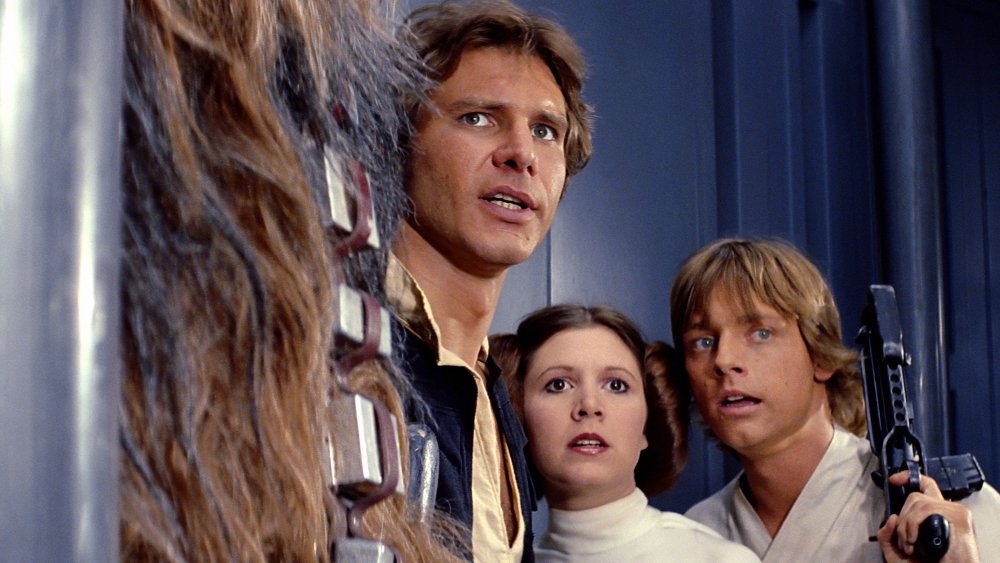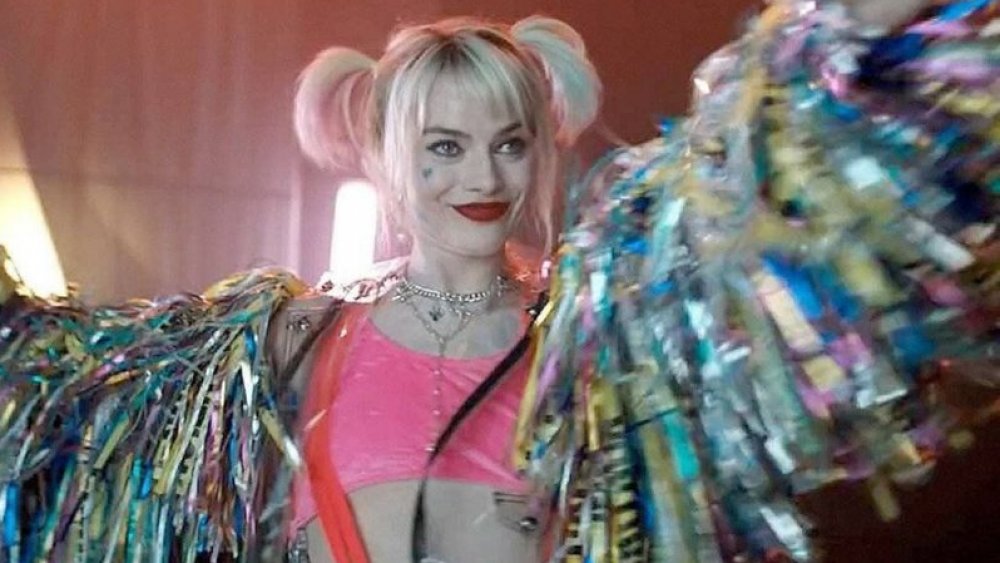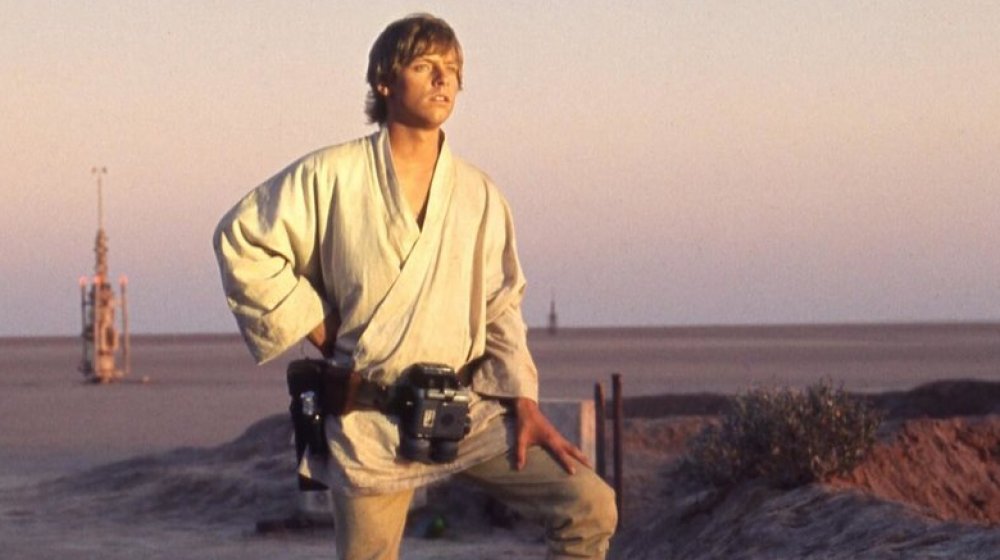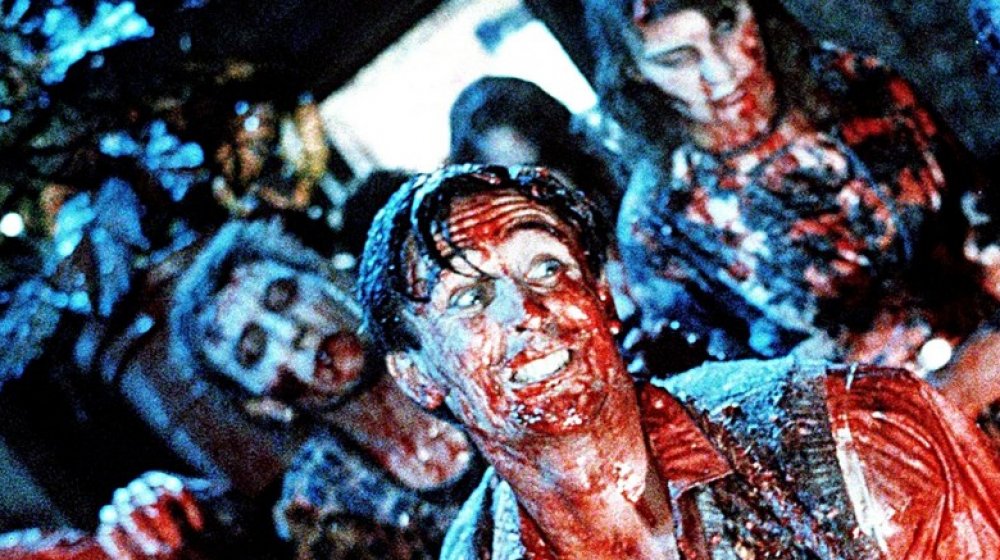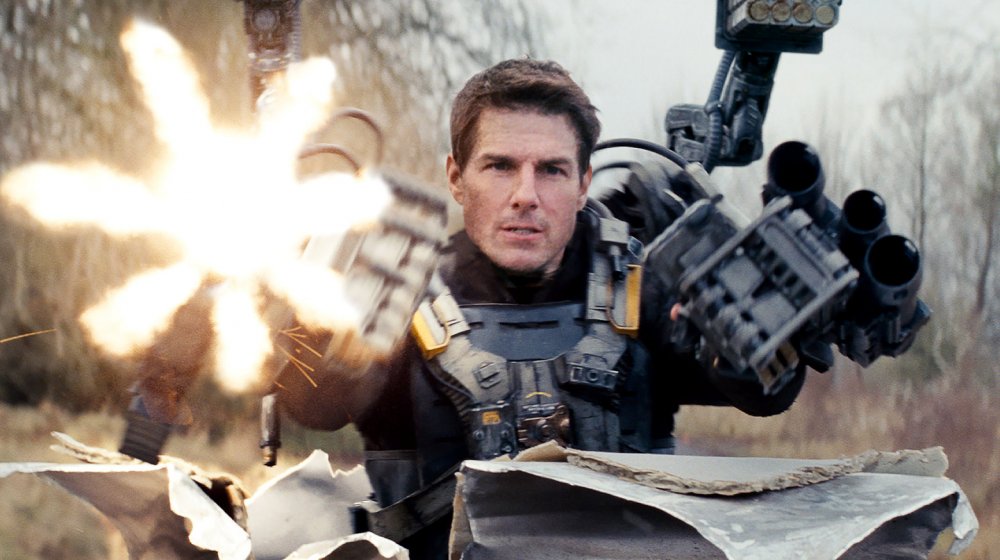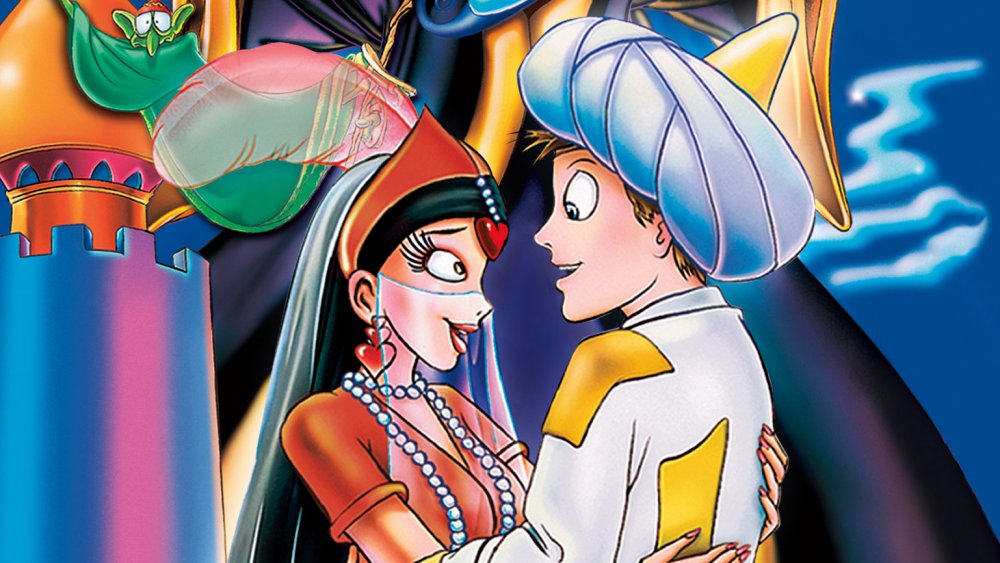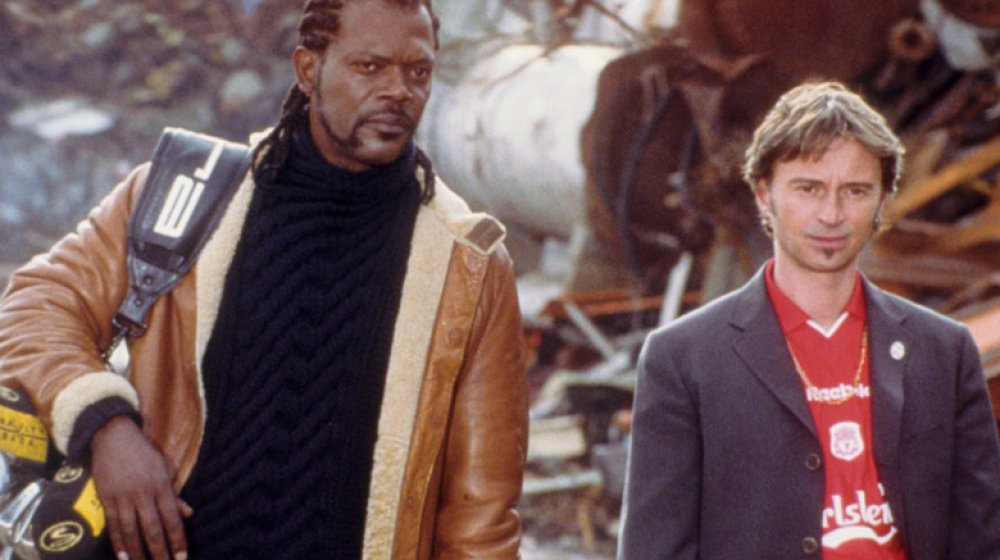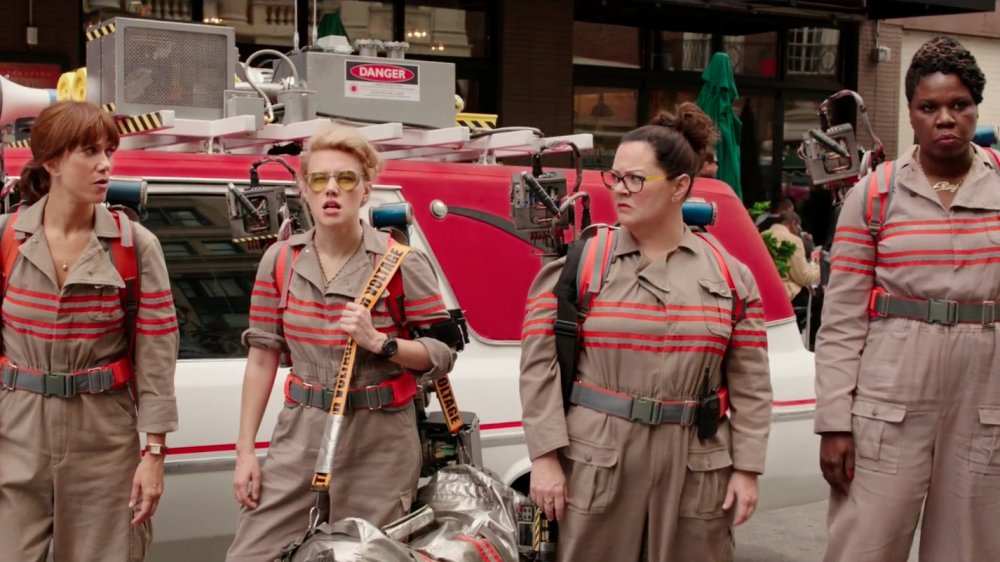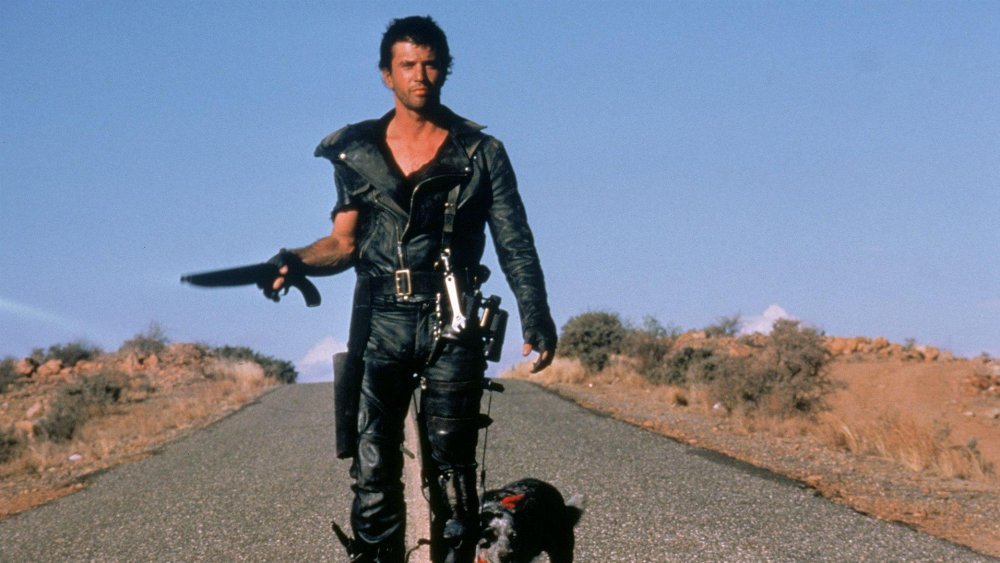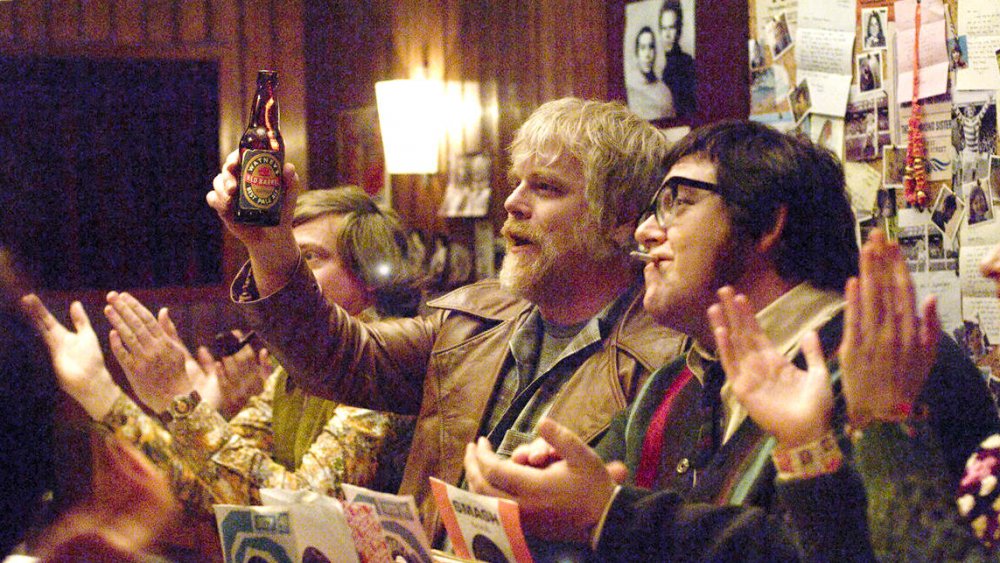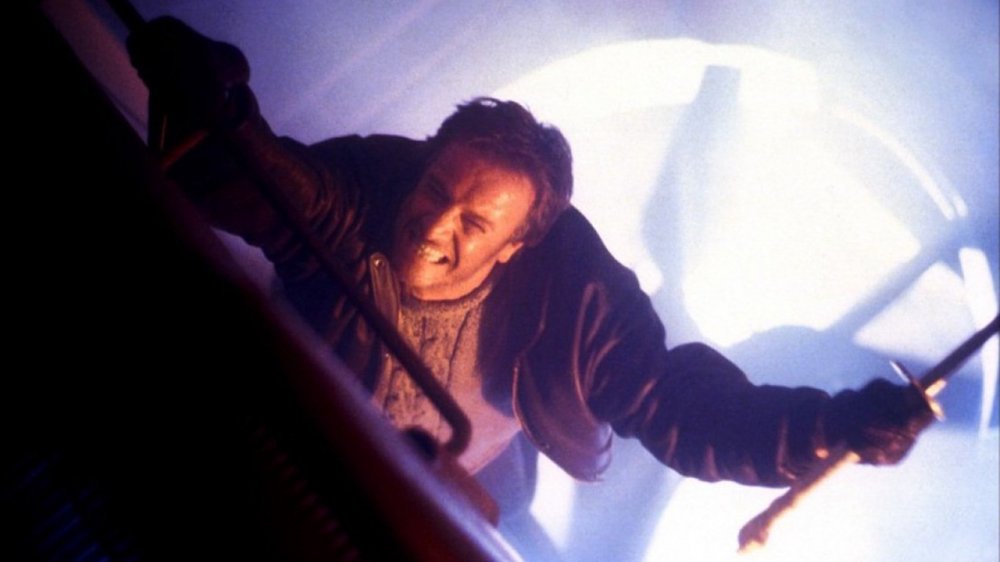Movies Forced To Change Their Title After Release
There are plenty of questionable movie titles out there (see: To Wong Foo, Thanks for Everything! Julie Newmar). But it's still a rare move for a movie studio to change a film's name once it has been released. Occasionally, though, it happens.
Sometimes it's done to try to boost ticket sales, other times it's an attempt to shake off the stink of a box-office bomb when the DVD hits shelves. And in some cases it's due to copyright infringement or because a title that works overseas makes no sense in the United States. Whatever the reason, the deed is done — to varying degrees of success.
So, whether it's the unprecedented move of changing a name while still in theaters or the less rare switcheroo for DVD release, can a film survive such an obvious identity crisis? Here are some movies that were forced to change their title after release.
Harley Quinn: Birds of Prey
In an extremely rare move, Warner Bros. changed the name of this 2020 movie while it was still in theaters. And it's pretty obvious why. The original title was a mouthful: Birds of Prey (or the Fantabulous Emancipation of One Harley Quinn).
By rebranding it Harley Quinn: Birds of Prey, the studio hoped to boost lackluster ticket sales by making it easier for audiences to find the movie in theaters. Plus, it just rolls off the tongue better. (According to a source, the change is just to streamline movie theater search engines and won't affect the official title in the long run.)
Birds of Prey is part of the extended DC Universe, a series of films featuring superheroes from DC Comics. The Warner Bros. franchise includes Wonder Woman, Aquaman, and Suicide Squad, from which Harley Quinn originated. Birds of Prey stars Margot Robbie as the perky supervillain, and follows her misadventures after breaking up with the Joker.
Star Wars
In 1977, George Lucas' Star Wars became an unexpected blockbuster. Back then, no one thought that the ambitious but somewhat hokey space story by a fledgling filmmaker would become a global franchise that would balloon to multiple films and remain relevant for decades.
But what was immediately clear was that Lucas had something very lucrative on his hands, so a sequel was made. However, when The Empire Strikes Back was released in 1980, the opening crawl threw fans for a loop: They were watching episode five, not two!
The studio had originally left the numbering off the Star Wars title so as not to confuse fans — they were watching the middle of the saga, not the beginning (which would be released two decades later when The Phantom Menace premiered in 1999). The revelation meant that the studio had to go back and rename the original. So when Star Wars was rereleased in theaters in 1981, it was renamed Star Wars Episode IV: A New Hope. And the rest, as they say, is history.
Dead Alive
Before the Lord of the Rings trilogy catapulted him to legendary filmmaker status, Peter Jackson got his start in his native New Zealand making unconventional low-budget films. One of those films was 1993's gory horror comedy Dead Alive.
Originally released in New Zealand under the name Braindead, the over-the-top zombie flick is reminiscent of Sam Raimi's equally gross Evil Dead franchise. It follows a young man whose mother is bitten by a Sumatran rat-monkey and subsequently reanimated, wreaking havoc on his life and the people around him. Although it was a box-office bomb at the time, it has achieved cult status since Jackson reached the A-list.
Rumor has it that the movie was renamed Dead Alive in the United States because of a copyright issue. Just three years earlier, in 1990, another horror film titled Brain Dead, starring Bill Pullman and Bill Paxton, was released. It was also a flop.
Edge of Tomorrow
This witty 2014 sci-fi action movie, starring Tom Cruise, cracked $100 million at the U.S. box office and was critically acclaimed. But even though it made $370 million worldwide, it was still considered to be somewhat of a disappointment. (It cost $178 million to make.) When it was released on DVD, its forgettable title was switched to Live.Die.Repeat.
It was a long, winding road to get to that title. Based on the Japanese book All You Need Is Kill, the movie was renamed the less violent but more generic Edge of Tomorrow, which some think contributed to the film's mediocre performance. It was a name that director Doug Liman was not enamored with. He wanted Live.Die.Repeat., which became the tagline — and ultimately became the DVD title.
While there's some debate over whether the name was officially changed, websites such as Amazon and Rotten Tomatoes ran with it. And the working title of the sequel also piggybacks on the new name, Live Die Repeat and Repeat.
Arabian Knight
Talk about a long journey: It took decades for this box-office bomb to see the light of day. Then it had three different names after its release.
Created by Richard Williams, best known as the animation director for Who Framed Roger Rabbit, the idea for the story originated in the 1960s. Due to financing issues and ambitious animation, the movie was in and out of production for decades before finally being released in the 1990s — three times.
Hoping to piggyback on the success of Disney's 1992 animated Aladdin, it had a limited release overseas to little fanfare in 1993 under the name The Princess and the Cobbler. Miramax Films then bought and re-edited the film, renaming it and rereleasing it as Arabian Knight in 1995 — all of which was for naught, since it was still a flop. When it was released on home video in 1997, the name was once again changed, to The Thief and the Cobbler.
Formula 51
The Samuel L. Jackson action flick Formula 51 was originally known as the 51st State when released in its native United Kingdom in 2001. It's about an American drug dealer (Jackson) who travels to England to sell a special new formula he has created. It will supposedly take users to the "51st state" because it is 51 times more potent than any other substance on the planet.
The problem with the title 51st State, though, is it means something entirely different in the United States. It refers to any future territory that will become the 51st state of the country. It can also have negative connotations, as it can refer to America having too much control or influence over an international territory.
Because of this, the distributor probably decided that Formula 51 was a more neutral title that was still fitting to the story. Despite the name change, the film flopped in both countries.
Ghostbusters (2016)
Everyone knows the answer to "Who you gonna call?" The question is, which batch of Ghostbusters would it be? There's the original 1984 cast that includes Bill Murray and Dan Aykroyd, or there's the 2016 reboot that stars Melissa McCarthy and Kristen Wiig. The fact is, most people probably think of the classic lineup when they hear the well-known song lyric.
That may have contributed to Sony Pictures releasing the all-female reboot as just Ghostbusters, even though they really wanted it to be called Ghostbusters: Answer the Call. It's the title that appears at the end of the film's credits but was rebuked as the main name by director Paul Feig. However, when the DVD came out, that's what it was called.
Perhaps the change was made in hindsight to try to distance the film from the original because some people — particularly some men — were up in arms that it featured an all-female main cast. Despite the poor press, the movie made $128 million in the United States, for a total of $229 million worldwide. But it's still considered a box-office disappointment because it cost $144 million to make. It seems doubtful, though, that the vague addition of Answer the Call helped boost DVD sales to make up some of the lost revenue.
The Road Warrior
These days the post-apocalyptical Mad Max is an iconic movie character. But that wasn't always the case.
While the original 1979 film starring Mel Gibson was a hit in its native Australia and beyond, very few people saw it in the United States upon its original release. So when Mad Max 2 was released in 1981, the title was changed to The Road Warrior in the United States. Because if no one saw the original, why would they flock to see the sequel?
The move worked, and the flick made nearly $24 million in the United States (three times more than the original) and catapulted Gibson onto the Hollywood A-list. And because of its success, the original Mad Max became a cult classic on TV and home video. The franchise went on to include 1985's Mad Max Beyond Thunderdome, featuring Tina Turner, and the 2015 reboot Mad Max: Fury Road starring Charlize Theron.
Pirate Radio
After flopping in Britain under the title The Boat That Rocked, Focus Features re-edited and rereleased this film starring Philip Seymour Hoffman in the United States in 2009 under the name Pirate Radio.
The film takes a fictitious look at the pirate radio stations that were on the air in the 1960s in the United Kingdom. Some of these stations were broadcast from boats in international waters to fill a rock and pop music void left by the ubiquitous BBC Radio. The movie lightheartedly deals with the British government's real-life attempt to shut down such renegades. (Pirate radio in various forms still persists to this day despite the government's efforts and subsequent laws.)
Despite the new name and a shorter run time (which many critics originally complained was too long), the movie still bombed at the box office. It made just $8 million in the United States, against a $50 million budget.
Highlander: The Final Dimension
The third film in the Highlander fantasy franchise may take the cake when it comes to names, having numerous titles for various countries and formats. Legend even has it that this 1994 installment was originally mislabeled as part four on some marketing material.
Known as Highlander: The Final Dimension in the United States, the film is called Highlander III: The Sorcerer in the United Kingdom, and Highlander III: The Magician in the rest of the world, among other variations. In it, Connor MacLeod — a.k.a. the Highlander, played by Christopher Lambert — is an Immortal who wanders the earth through various centuries fighting battles while trying to lead a normal life on the surface.
The movie was a box office failure, making just $12 million in the United States against a $26 million budget. Despite the dismal showing, the franchise went on to release several more films and TV series, in addition to books, comics and video games.
